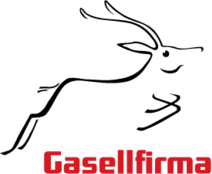Key Features:
- Liability: Shareholders’ liability is limited to their investment in the company. Personal assets are protected from business liabilities.
- Capital Requirements: The minimum share capital is just 1 euro cent per shareholder, but practical operating capital is usually higher.
- Management: Offers flexible management and organizational structure. The transfer of shares typically requires notarization unless the share capital exceeds 10,000 euros.
- Suitability: Ideal for a wide range of business activities and scalable as the business grows.
Pros: Limited liability protects personal assets. Low initial capital requirement. Flexible and suitable for various business sizes and types.
Cons: More regulatory compliance compared to simpler structures. Share transfers might involve legal formalities like notarization.
Key Features:
- Liability: Shareholders’ liability is limited to their shareholdings, protecting personal assets from company debts.
- Capital Requirements: Requires a minimum share capital of 25,000 euros.
- Management: Shares must be registered with the Estonian Central Register of Securities, ensuring transparency and regulatory compliance.
- Suitability: Ideal for businesses that plan to expand significantly and seek to attract substantial investment through public stock offerings.
Pros: Enables raising capital from public investors. Limited liability for shareholders. High credibility and visibility in the market.
Cons: High initial capital requirement. Extensive regulatory and reporting obligations.
Key Features:
- Liability: The owner has unlimited personal liability for all business debts and obligations.
- Capital Requirements: No initial capital requirement.
- Management: The owner has full control over the business operations and decisions.
- Suitability: Best for individuals seeking to start a small-scale business or operate as freelancers.
Pros: Simple and inexpensive to set up and manage. Full control over business decisions and operations.
Cons: Unlimited personal liability poses significant financial risk. Unique taxation issues as business income is treated as personal income.
Key Features:
- Liability: Partners are jointly and severally liable for the partnership’s debts.
- Capital Requirements: No minimum capital requirement.
- Management: Partners share management duties and profits equally.
- Suitability: Suitable for small businesses where partners wish to have equal control and share profits and responsibilities.
Pros: Easy to form with shared management responsibilities. No initial capital requirement.
Cons: Joint and several liability can pose significant personal financial risk. Potential for disputes among partners.
Key Features:
- Liability: General partners have unlimited liability, while limited partners’ liability is restricted to their investment.
- Capital Requirements: No specific minimum capital requirement.
- Management: General partners manage the business, while limited partners typically invest without involving in day-to-day management.
- Suitability: Ideal for businesses where some partners want to limit their liability while others manage the business.
Pros: Flexibility with different levels of liability and involvement for partners. No minimum capital requirement.
Cons: Management complexity due to different liability levels. Unlimited liability for general partners.
Key Features:
- Liability: Members are generally not personally liable unless specified in the association’s articles.
- Capital Requirements: Typically requires a minimum share capital of 2,500 euros, but this can be waived if members assume personal liability.
- Management: Managed collectively by its members, focusing on mutual benefits.
- Suitability: Best for cooperative ventures where members share common economic interests.
Pros: Designed to support members' economic interests. Flexible capital requirements.
Cons: Activities are limited to member-driven purposes, restricting purely profit-driven operations. Requires adherence to cooperative regulations.
Key Features:
- Liability: Members are not personally liable for the association’s obligations.
- Capital Requirements: No initial capital requirement.
- Management: Focuses on non-profit activities with simple governance.
- Suitability: Perfect for non-commercial endeavors aimed at achieving social, cultural, or community objectives.
Pros: Ideal for entities focusing on non-profit activities. Simple to establish and manage without the need for capital.
Cons: Limited to non-profit activities, restricting commercial operations. Funding can be less predictable, relying on donations and grants.


